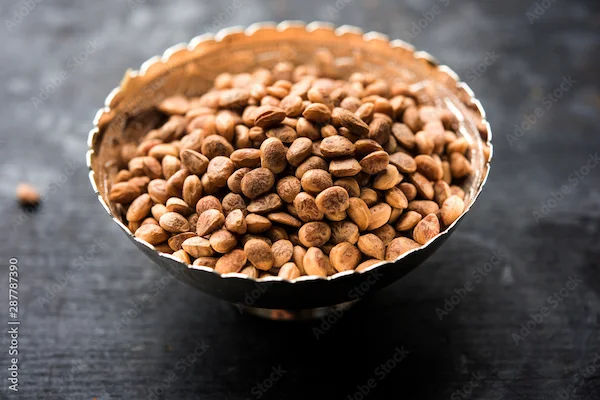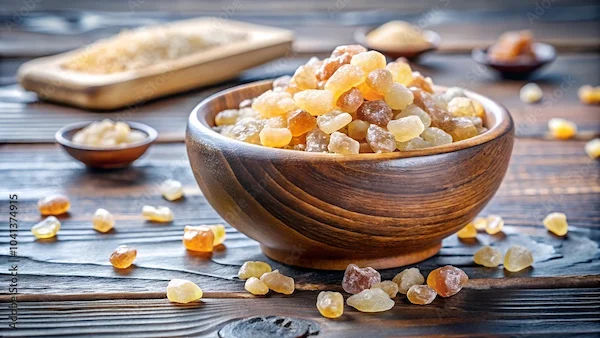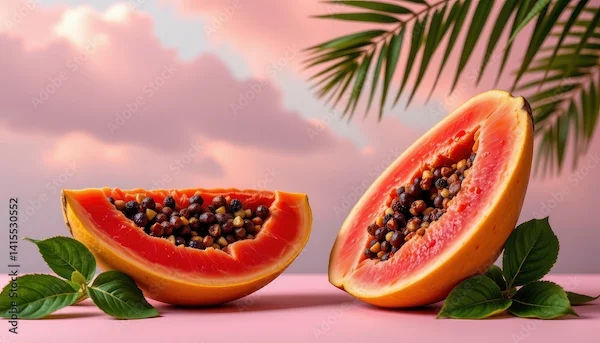Black Chana: Ayurvedic Uses, Benefits, and Side Effects
Discover black chana benefits. A fibre-rich protein food among ayurvedic pulses with science-backed uses, easy recipes, and possible side effects.

Written by Dr. Dhankecha Mayank Dineshbhai
Reviewed by Dr. Md Yusuf Shareef MBBS
Last updated on 12th Nov, 2025

Introduction
Black chana, also called kala chana or desi chickpeas, is a staple ingredient in Indian kitchens and a highly valued pulse in traditional Ayurvedic cuisine. Affordable, versatile, and packed with nutrients, black chana is an excellent plant-based source of protein, fibre, and essential vitamins and minerals. Regular consumption can support heart health, gut function, sustained energy, and overall wellness. Beyond its nutritional value, it has a rich culinary and cultural history, appearing in a wide range of traditional dishes, snacks, and salads. In this guide, we explore the science-backed benefits of black chana, insights from Ayurveda, practical ways to include it in everyday meals, and precautions to ensure safe and effective use.
Consult a Top Ayurveda Specialist for Personalised Advice
What Is Black Chana?
Black chana is a small, dark-brown chickpea with a nutty taste and firm texture. It belongs to the legume family, which includes lentils, beans, and peas. In Indian cooking, it can be used whole (kala chana) or split and skinned (chana dal). In Indian cooking, black chana is used in two main forms:
- Whole black chana (kala chana): These retain their skins, offering a slightly chewy texture, and are ideal for curries, stews, and snacks.
- Split and skinned black chana (chana dal): These cook faster and are commonly used in dals, soups, and porridge-like preparations.
Nutritionally, black chana is very similar to other chickpeas, providing a combination of high-quality plant protein, dietary fibre, and essential micronutrients such as iron, folate, and potassium. Its naturally gluten-free profile makes it suitable for most diets, including vegetarian and vegan lifestyles.
In addition to being nutrient-dense, black chana is also affordable and widely available, making it a practical staple for households looking to support balanced, wholesome meals. Its versatility allows it to blend seamlessly into traditional recipes, modern salads, snacks, and even fusion dishes, providing both flavour and long-lasting satiety.
Nutritional Highlights
- Budget-friendly source of protein
- High in fibre and micronutrients
- Naturally gluten-free
- Easy to include in a variety of dishes
Black Chana Nutrition at a Glance
Approximate values for 1/2 cup cooked black chana:
- Protein: 7 g
- Fibre: 6 g
- Iron: 2 mg (non-heme iron)
- Folate: 140 mcg
- Potassium: 200–250 mg
- Low in fat and naturally cholesterol-free
These nutrients make black chana especially valuable for vegetarians, vegans, and anyone seeking plant-based protein.
Evidence-Based Black Chana Benefits
Some benefits and usefulness of black chana are:
Heart Health Support
- Why it helps: Soluble and insoluble fibre can help reduce LDL (“bad”) cholesterol.
- Tip: Incorporate black chana in curries, salads, or soups a few times per week as part of a heart-smart eating pattern including vegetables, whole grains, nuts, and healthy oils.
Steadier Energy and Blood Sugar Control
- Why it helps: Protein and fibre slow digestion, moderating post-meal blood sugar spikes.
- Tip: Pair black chana with non-starchy vegetables and healthy fats like olive oil.
Digestive Health and Regularity
- Why it helps: Fibre supports bowel regularity and digestive comfort.
- Tip: Increase intake gradually and drink plenty of water to reduce gas and bloating.
Satiety and Weight Management
- Why it helps: High fibre and protein promote fullness and reduce cravings.
- Tip: Add black chana to salads, grain bowls, or vegetable dishes for more satisfying meals.
Nutrient Support
- Iron: Non-heme iron supports blood health; pair with vitamin C foods (tomatoes, lemon, bell peppers) for better absorption.
- Folate: Important for cell function and pregnancy.
- Potassium: Supports healthy blood pressure as part of a balanced diet.
Plant-Based Protein
- Why it helps: Chickpeas provide high-quality plant protein; they combine with grains for all essential amino acids.
- Tip: Serve black chana with rice, millet, whole-wheat roti, or vegetables for a complete, nourishing plate.
Ayurvedic Perspective on Black Chana
In Ayurveda, pulses like black chana are nourishing and grounding staples. Traditional practices focus on improving digestibility and balancing meals.
Common Ayurvedic Practices
- Soak and cook well: Reduces gas-forming compounds.
- Digestive spices: Use cumin, ginger, coriander, turmeric, garlic, or asafoetida (hing).
- Healthy fats: Small amounts of ghee or oils improve taste and satiety.
- Warm, cooked meals: Easier to digest than cold, raw preparations.
Traditional Ways to Enjoy Black Chana
- Kala chana masala: Spiced curry with tomatoes, onions, and herbs
- Sprouted chana salad: Steamed sprouts tossed with lemon and spices
- Chaat: Tangy snack with herbs, onions, and chutneys
- Sattu: Roasted chana flour used in drinks and savoury dishes
Note: Ayurvedic guidance is personalised. Consult a qualified practitioner for advice tailored to your constitution and digestion.
How to Add Black Chana to Your Routine?
Follow the tips below for adding black chana to your routine:
Preparation Tips
- Soak first: Rinse, soak 8–12 hours, drain, and rinse again.
- Cook thoroughly: Pressure cook or simmer in fresh water until tender. Add salt toward the end to avoid tough skins.
- Batch-cook and freeze: Cook extra portions for quick meals.
Easy Meal Ideas
- Stir into vegetable soups for extra protein and body
- Toss with cucumber, tomatoes, onions, lemon, and herbs for a salad
- Make a curry with spinach, tomatoes, and spices
- Roast cooked black chana with a little oil and seasoning for a crunchy snack
- Blend into dips like hummus for an earthy flavour
Portion and Frequency
- Recommended serving: 1/2 cup cooked black chana
- Gradually increase portions if new to legumes to minimise gas and bloating
Potential Side Effects and Precautions
Common Issues
- Gas and bloating: Soak, rinse, cook thoroughly, use digestive spices, and increase intake gradually
- Food allergies: Stop consuming if you experience itching, hives, swelling, or breathing issues
- Sensitive digestion: People with IBS or digestive conditions should consult a clinician or dietitian
Mineral Absorption and Interactions
- Phytates in legumes can reduce mineral absorption; soak, sprout, and cook well to mitigate
- Pair with vitamin C-rich foods to enhance iron absorption
- Potassium considerations: Those with kidney issues should consult a healthcare professional
- Medication timing: High-fibre meals can interfere with absorption; separate from medications if advised
Smart Shopping, Storage, and Safety
Smart buying, storage, and safety tips include:
- Choose: Evenly coloured, dry black chana without debris
- Rinse: Wash thoroughly before soaking and cooking
Store:
- Dried beans in a cool, dry, airtight container
- Cooked beans refrigerated in a sealed container, or freeze for longer storage
- Reheat safely: Heat thoroughly until steaming hot
Quick 5-Step Weeknight Method
The 5-step weeknight method
- Soak 1 cup black chana overnight; drain and rinse
- Add to a pot with fresh water, covering by a few inches
- Simmer or pressure cook until tender
- Prepare sauce: warm oil, sauté cumin, ginger, garlic, turmeric, and crushed tomatoes
- Stir in cooked chana, salt, lemon juice, and fresh cilantro
Conclusion
Black chana is a nutritious, affordable, and versatile pulse suitable for modern healthy eating and traditional Ayurvedic practices. Rich in fibre, protein, iron, folate, and potassium, it supports digestion, satiety, energy, and overall well-being.
With simple preparation methods—soaking, cooking thoroughly, and seasoning with digestive spices—black chana can easily become a delicious, nourishing staple in your weekly meals. Whether in curries, salads, roasted snacks, or sprouted dishes, incorporating black chana supports a balanced, plant-forward diet and a healthy lifestyle.
Consult a Top Ayurveda Specialist for Personalised Advice
Consult a Top Ayurveda Specialist for Personalised Advice

Dr. Pepsy Jose
Panchakarma Practitioner
14 Years • BAMS, MD Ayurveda (Panchakarma)
Bengaluru
AYURRHYTHM HOLISTIC CLINIC AND PANCHAKARMA THERAPY, Bengaluru

Dr. Shiv Prakash Singh
Ayurveda Practitioner
19 Years • BAMS
Kolkata
Vedhive Ayurveda College Street, Kolkata

Dr. Anjan Das
Ayurveda Practitioner
8 Years • Ayurvedacharya ( B.A.M.S )
Dumdum
Vedhive Ayurveda Clinic, Dumdum

Dr. Rik Sadhukhan
Ayurveda Practitioner
8 Years • BAMS
Kolkata
Vedhive Ayurveda, Ballygunge, Kolkata
Consult a Top Ayurveda Specialist for Personalised Advice

Dr. Pepsy Jose
Panchakarma Practitioner
14 Years • BAMS, MD Ayurveda (Panchakarma)
Bengaluru
AYURRHYTHM HOLISTIC CLINIC AND PANCHAKARMA THERAPY, Bengaluru

Dr. Shiv Prakash Singh
Ayurveda Practitioner
19 Years • BAMS
Kolkata
Vedhive Ayurveda College Street, Kolkata

Dr. Anjan Das
Ayurveda Practitioner
8 Years • Ayurvedacharya ( B.A.M.S )
Dumdum
Vedhive Ayurveda Clinic, Dumdum

Dr. Rik Sadhukhan
Ayurveda Practitioner
8 Years • BAMS
Kolkata
Vedhive Ayurveda, Ballygunge, Kolkata
More articles from General Medical Consultation
Frequently Asked Questions
Is black chana good for weight loss?
Yes, when included in balanced meals
High fibre and protein help with satiety. Stick to 1/2 cup cooked per serving, paired with vegetables and healthy fats
How much protein does black chana have?
Approximately 7 grams per 1/2 cup cooked. Supports vegetarian and plant-forward diets
Can people with diabetes eat black chana?
Yes, in moderate portions. Fibre and protein help slow blood sugar rise. Pair with non-starchy vegetables and healthy fats
Do I have to soak black chana?
Yes, it is strongly recommended. Improves cooking time, texture, and digestibility. If using a pressure cooker without soaking, digestion may be slightly harder
Is sprouted black chana better?
Yes, Sprouting may improve digestibility and nutrient availability. Cook sprouts to reduce foodborne illness risk. Choose the method that fits your taste and schedule




